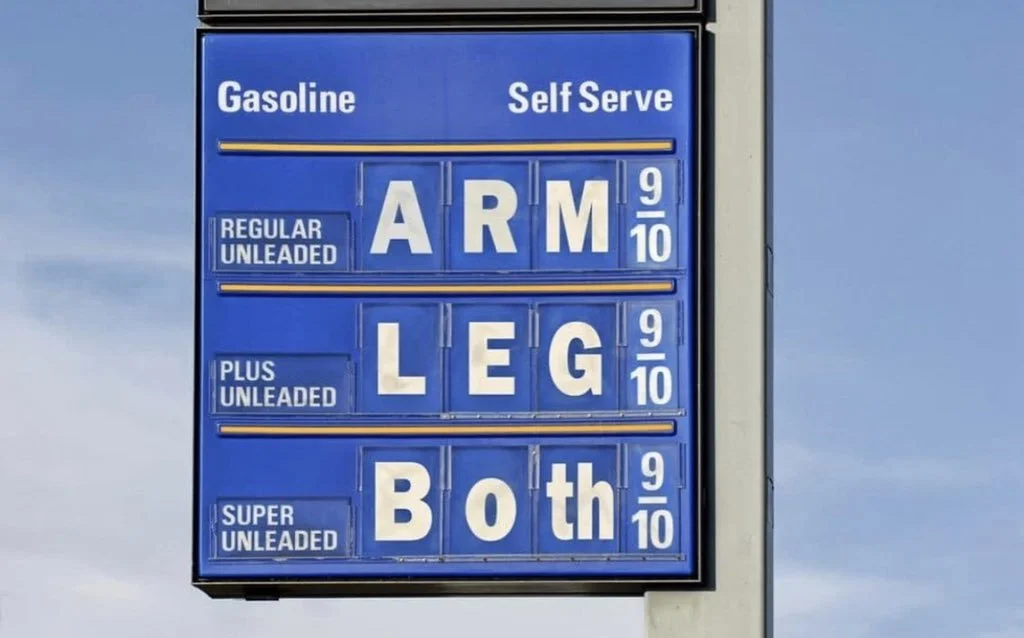The City of London
Many people think that the British Empire gradually fell following the end of the Second World War. The sun never set on the British Empire. The City of London, British tax havens, and English-speaking bankers still finance their world empire, also known as the Military Industrial Complex.
The City of London is separate and independent from London and the rest of England. Like Vatican City in the middle of Rome, the City of London is located in the middle of London. It is just over a square mile in size.
According the City of London’s own website,[1]
“Based in Guildhall, the City Corporation looks after and promotes the City of London. It is headed by the Lord Mayor with the Court of Common Council being its main decision-making body. We are a uniquely diverse organisation, with a role that goes beyond that of an ordinary local authority. We have our own government (the oldest in the country with origins pre-dating Parliament), our own Lord Mayor and independent police force.”
The reason that the City of London is governed separately traces back to the Norman conquest of England in 1066. Instead of outright conquering the city following the Battle of Hastings, William the Conquerer agreed that the City of London could govern themselves so long as they submitted to his rule.
Again, according to their own website,[2]
“The City of London developed a unique form of government which led to the system of parliamentary government at local and national level. Its constitution is rooted in the ancient rights and privileges enjoyed by citizens before the Norman Conquest in 1066.
That London enjoyed certain freedoms and had a form of civic administration before the Norman conquest, can be seen in the Charter granted by William the Conqueror in 1067, in which he promised to recognise the rights, privileges and laws that the City had enjoyed since the time of Edward the Confessor (1042-62). In Saxon London and in the medieval period, municipal authority rested principally with Aldermen ('elder' men or elderfolk), who met in the City's ancient Court of Husting - the supreme court of the medieval City, with administrative and judicial functions. There is reliable evidence of its existence in 1032, although it was probably much older, and by the mid-12th century it was held weekly. It is likely that the Court of Aldermen developed from the administrative side of the work of the Court of Husting.
The right of the City to run its own affairs was gradually won as concessions were gained from the Crown. London's importance as a centre of trade, population and wealth secured it rights and liberties earlier than other towns and cities. From medieval to Stuart times the City was the major source of financial loans to monarchs, who sought funds to support their policies at home and abroad. In early times London was two cities – the trading and residential City of London and the royal, administrative and religious West-minster. As London grew, the City specialised in trade.
The City’s links to its original trading roots are still alive today in its connection with the livery companies. These were created from the early trade practices dating back to the 12th century and maintained standards in their industries, regulated their crafts and had a major say in the way the City was run.”
The livery companies (corporations operating in The City) have access to the City of London’s freedom- including freedom from Great Britain’s tax laws.[3]
“The medieval term 'freeman' meant someone who was not the property of a feudal lord but enjoyed privileges such as the right to earn money and own land. Town dwellers who were protected by the charter of their town or city were often free – hence the term 'freedom' of the City.
From the Middle Ages and the Victorian era, the Freedom was the right to trade, enabling members of a Guild or Livery to carry out their trade or craft in the Square Mile.”
According to Nicholas Shaxson writing for the New York Times,[4]
“Taken together with its partly controlled territories overseas, Britain is instrumental in the worldwide concealment of cash and assets. It is, as a member of the ruling Conservative Party said last week, ‘the money laundering capital of the world.’ And the City of London, its gilded financial center, is at the system’s core.”
Britain has several other tax havens that allows them to influence world trade. These include the British Virgin Islands, Bermuda, and the Cayman Islands.
According to Guy Faulconbridge writing for Reuters,[5]
“British tax havens are responsible for 29% of the $245 billion in tax the world loses to corporates, according to Tax Justice Network, which ranks BVI, Cayman Islands and Bermuda as the top three enablers of corporate tax abuse on the planet.”
Additionally, Britain still has several notably large banks such as Hong Kong and Shanghai Banking Corporation (HSBC), Lloyds Banking Group, the Royal Bank of Scotland (RBS), and Barclays. These banks, combined with Britains tax havens and influence in former colonies such as Singapore, the USA (petro-dollar), and to a lesser extent today, Hong Kong, mean that much finance goes through the English-speaking banking system.
Again, according to Nicholas Shaxton in the same article,[6]
“The wealth held in tax havens is staggering: Estimates range from $6 trillion to $36 trillion. And some tax havens are closer to home than many would imagine. The United States, with its shady Delaware shell companies and South Dakota trusts, has long been a big part of the secrecy system. A cluster of European countries, including Luxembourg, Ireland and Switzerland, offer another menu of escape routes. Asia, of course, has Hong Kong and Singapore.”
The Queen of England still has her face on the money of Canada, Australia, and New Zealand in addition to Great Britain. Great Britain also created Saudi Arabia (petro-dollar) and Israel. The author would bet that her inner circle (the Rothschilds) has some influence on the world affairs.[7][8]
The USA are the muscle for the British Empire. The United States’ Military Industrial Complex was created during the World Wars to arm Britain. We helped them conquer Western Europe and took over Western Europe’s empires. Today, the MIC is used to arm English speaking Americans to fight the British Empire’s wars in defense of the petro-dollar.[9]
The term Military Industrial Complex was first coined by President Dwight D. Eisenhower in his January 17, 1961 farewell address. Eisenhower was also the Supreme Allied Commander in Europe during WWII. He said,[10]
“Until the latest of our world conflicts, the United States had no armaments industry. American makers of plowshares could, with time and as required, make swords as well. But now we can no longer risk emergency improvisation of national defense; we have been compelled to create a permanent armaments industry of vast proportions. Added to this, three and a half million men and women are directly engaged in the defense establishment. We annually spend on military security more than the net income of all United States corporations.
This conjunction of an immense military establishment and a large arms industry is new in the American experience. The total influence -- economic, political, even spiritual -- is felt in every city, every State house, every office of the Federal government. We recognize the imperative need for this development. Yet we must not fail to comprehend its grave implications. Our toil, resources and livelihood are all involved; so is the very structure of our society.
In the councils of government, we must guard against the acquisition of unwarranted influence, whether sought or unsought, by the militaryindustrial complex. The potential for the disastrous rise of misplaced power exists and will persist.”
So while their empire does not appear to be as big today as in 1945, the City of London still finances a world empire.
The sun never set on the British Empire. The City of London, British tax havens, and English-speaking bankers still finance their world empire.
The world speaks English for a reason.
[1]https://www.cityoflondon.gov.uk/about-us/about-the-city-of-london-corporation/our-role-in-london
[2]https://www.cityoflondon.gov.uk/about-us/law-historic-governance/the-citys-government
[3]https://www.cityoflondon.gov.uk/about-us/law-historic-governance/freedom-of-the-city
[4]https://www.nytimes.com/2021/10/11/opinion/pandora-papers-britain-london.html
[5]https://www.reuters.com/business/finance/british-treasure-island-tax-havens-face-tempest-2021-06-07/
[6]https://www.nytimes.com/2021/10/11/opinion/pandora-papers-britain-london.html
[7]https://avalon.law.yale.edu/20th_century/balfour.asp
[8]https://www.iwm.org.uk/history/who-was-lawrence-of-arabia
[9]https://www.hamiltonmobley.com/blog/r9tu385c22azkxuycdia7o3kludljh
[10]https://avalon.law.yale.edu/20th_century/eisenhower001.asp



